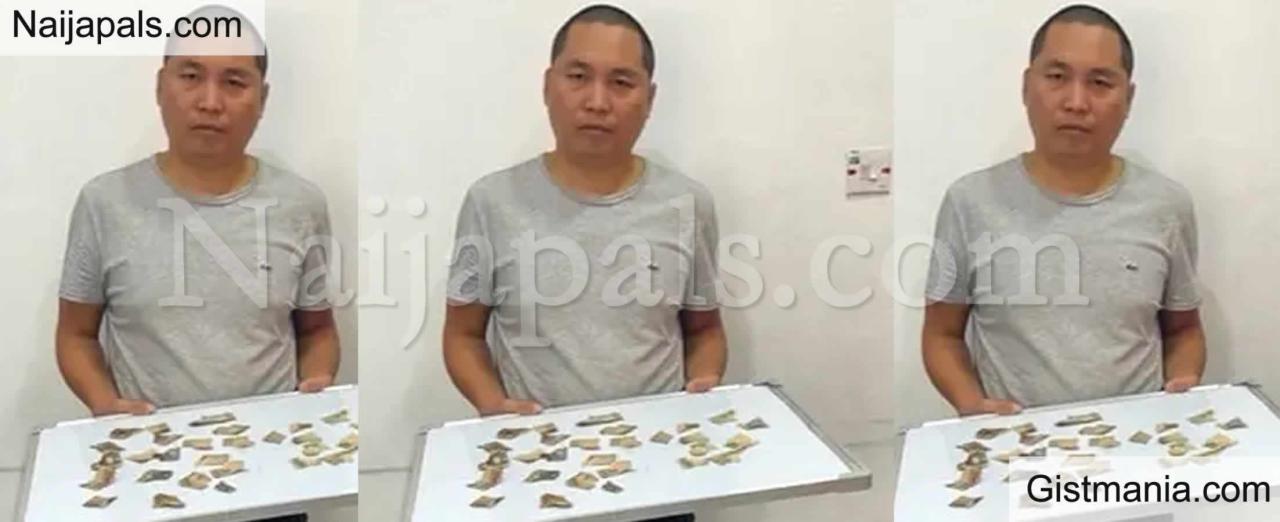Naira mutilation, the act of defacing or damaging the Nigerian currency, is a prevalent issue with severe economic and social implications. This comprehensive guide delves into the causes, consequences, and preventive measures surrounding naira mutilation, providing insights into its impact on the Nigerian economy and society.
Definition of Naira Mutilation

Naira mutilation refers to the act of intentionally or unintentionally damaging or altering the physical integrity of Nigerian naira banknotes.
Mutilated banknotes can result from various actions, including tearing, cutting, burning, or defacing the notes. These actions compromise the security and usability of the banknotes, rendering them unfit for circulation.
Examples of Mutilated Naira Notes, Naira mutilation
- Notes with significant tears or holes
- Notes with missing or defaced portions
- Notes that have been burned or charred
li>Notes that have been stained or discolored
Consequences of Naira Mutilation

Naira mutilation poses significant challenges for the Nigerian economy and its citizens. Understanding the consequences is crucial for promoting responsible handling of the national currency.
Negative Effects on the Nigerian Economy
- Loss of Value:Mutilated notes lose their value and cannot be used for transactions, leading to a reduction in the overall money supply.
- Increased Costs for the Central Bank:The Central Bank of Nigeria (CBN) incurs substantial costs in replacing mutilated notes, diverting resources from other essential economic activities.
- Undermining Public Confidence:Mutilated notes erode public trust in the currency and the financial system, potentially leading to economic instability.
Challenges Faced by Banks
Banks play a critical role in managing mutilated notes, but they face several challenges:
- Difficulty in Detection:Mutilated notes can be difficult to detect during the counting and sorting process, leading to potential losses for banks.
- Limited Acceptance:Banks may refuse to accept heavily mutilated notes, causing inconvenience and frustration for customers.
- Increased Operational Costs:Banks must invest in specialized equipment and training to handle mutilated notes, adding to their operational expenses.
Implications for Individuals
Possessing mutilated notes can have significant implications for individuals:
- Loss of Value:Mutilated notes cannot be used for transactions, resulting in financial loss for the individual.
- Inconvenience:Individuals may face difficulties in exchanging mutilated notes at banks or other financial institutions.
- Legal Consequences:Intentional mutilation of naira notes is a criminal offense, and individuals may face legal repercussions.
Prevention of Naira Mutilation

Preventing naira mutilation requires a multifaceted approach involving public education, responsible handling practices, and innovative solutions.
Public Education Campaigns
Educating the public about the importance of handling naira notes with care is crucial. Campaigns should emphasize the consequences of mutilation and promote responsible practices. These campaigns can be disseminated through various channels, including media, schools, and community outreach programs.
Responsible Handling Practices
Individuals can play a significant role in preventing naira mutilation by adopting responsible handling practices:
- Avoid folding or crumpling notes excessively.
- Keep notes clean and dry.
- Store notes in wallets or other protective containers.
- Avoid using staples, paper clips, or other objects that can damage notes.
Innovative Solutions
Exploring innovative solutions can further protect naira notes from damage. These include:
- Introducing durable note materials that resist tearing and wear.
- Developing electronic payment systems to reduce the physical handling of notes.
- Promoting digital wallets and mobile banking for secure and convenient transactions.
Economic Impact of Naira Mutilation
The economic impact of naira mutilation is substantial, leading to financial losses for individuals, businesses, and the government. This damage stems from the devaluation of mutilated notes, the cost of replacing them, and the disruption to economic activities.
Losses Resulting from Naira Mutilation
Mutilated naira notes are often rejected by banks and businesses, resulting in financial losses for individuals and businesses. The Central Bank of Nigeria (CBN) estimates that over ₦200 billion worth of mutilated notes are in circulation, representing a significant loss of value.
The mutilation of the naira currency has become a rampant issue, tarnishing the image of our beloved nation. This deplorable act has sparked widespread outrage, calling for immediate action to restore the integrity of our legal tender. While the authorities grapple with this pressing matter, football fans eagerly anticipate the thrilling encounter between Sundowns and Young Africans.
Sundowns vs Young Africans promises to be a captivating spectacle, showcasing the prowess of two African footballing giants. However, let us not forget the importance of preserving our currency and upholding the dignity of our country by combating naira mutilation.
Impact on Naira Currency Value
The circulation of mutilated notes can erode the value of the naira currency. As mutilated notes are rejected, the demand for clean notes increases, leading to an appreciation in their value. This can have a negative impact on the economy, as it can lead to inflation and a decrease in the purchasing power of the naira.
Implications for Monetary Policy and Economic Growth
Naira mutilation can also have implications for monetary policy and economic growth. The CBN’s ability to control the money supply is hindered when a significant amount of mutilated notes are in circulation. This can lead to difficulties in managing inflation and maintaining economic stability.
Furthermore, the cost of replacing mutilated notes can divert resources from other important economic activities. This can slow down economic growth and reduce the government’s ability to invest in essential public services.
International Comparisons of Naira Mutilation
In comparison to other currencies, the prevalence of naira mutilation is a significant concern. Various countries have implemented best practices to combat currency mutilation, which offer valuable insights for Nigeria.
Prevalence and Best Practices
Studies indicate that the prevalence of naira mutilation is higher compared to other major currencies, such as the US dollar, euro, and British pound. This discrepancy can be attributed to factors like cultural practices, lack of awareness, and inadequate enforcement of currency handling regulations.
To address currency mutilation, several countries have adopted effective measures. These include:
- Public awareness campaigns:Educating the public about the consequences and prevention of currency mutilation through various channels.
- Strict enforcement of regulations:Implementing penalties for individuals or businesses found mutilating currency.
- Collaboration with banks and financial institutions:Engaging with banks and financial institutions to detect and report mutilated currency.
- Technological advancements:Utilizing advanced technology, such as currency sorting machines, to identify and remove mutilated notes from circulation.
Opportunities for Collaboration
By studying the best practices adopted by other countries, Nigeria can identify opportunities for collaboration and learning.
- Knowledge sharing:Exchanging information and best practices with other countries to enhance understanding and develop effective strategies.
- Joint research initiatives:Collaborating on research projects to explore the causes and solutions for currency mutilation.
- Technical assistance:Seeking technical assistance from countries with successful currency management programs.
Future Trends and Innovations in Naira Protection

To combat the persistent issue of naira mutilation, various emerging technologies and innovative approaches are being explored. These advancements aim to enhance the durability and security of naira notes, minimizing the instances of damage and extending their lifespan.
One promising avenue lies in the integration of advanced materials and printing techniques. The development of polymer banknotes, for instance, offers increased resistance to wear and tear, moisture, and other environmental factors that contribute to note deterioration. Additionally, the use of high-security inks and holographic elements makes it more challenging to counterfeit or alter naira notes.
Digital Currency as a Potential Solution
The advent of digital currency presents a transformative opportunity to address the problem of naira mutilation. By transitioning to a digital payment system, the physical handling of banknotes can be significantly reduced, thereby eliminating the primary cause of damage and mutilation.
Digital currency transactions are conducted electronically, eliminating the need for physical notes and the associated risks of mishandling.
Policy Initiatives and Research Directions
To further strengthen the fight against naira mutilation, proactive policy initiatives and continued research efforts are crucial. Governments and central banks can implement stricter regulations and penalties for individuals or businesses found mutilating or defacing naira notes. Public awareness campaigns can also play a vital role in educating the population about the importance of proper handling and storage of naira notes.
Research institutions and academia can contribute by exploring innovative methods for detecting and preventing naira mutilation. This includes the development of advanced sensors, machine learning algorithms, and data analytics techniques to identify and track damaged notes in circulation.
Final Summary

Addressing naira mutilation requires a multifaceted approach involving public education, innovative solutions, and strict enforcement of legal regulations. By understanding the causes and consequences of naira mutilation, we can collectively contribute to preserving the integrity of our currency and fostering a culture of responsible handling of banknotes.
FAQ Compilation
What are the common causes of naira mutilation?
Human handling, environmental factors, and improper storage are the primary causes of naira mutilation.
What are the economic consequences of naira mutilation?
Naira mutilation leads to increased production and replacement costs, reduced value of the currency, and negative impacts on monetary policy.
What are the legal implications of naira mutilation?
Mutilating naira notes is a criminal offense in Nigeria, punishable by fines or imprisonment.
